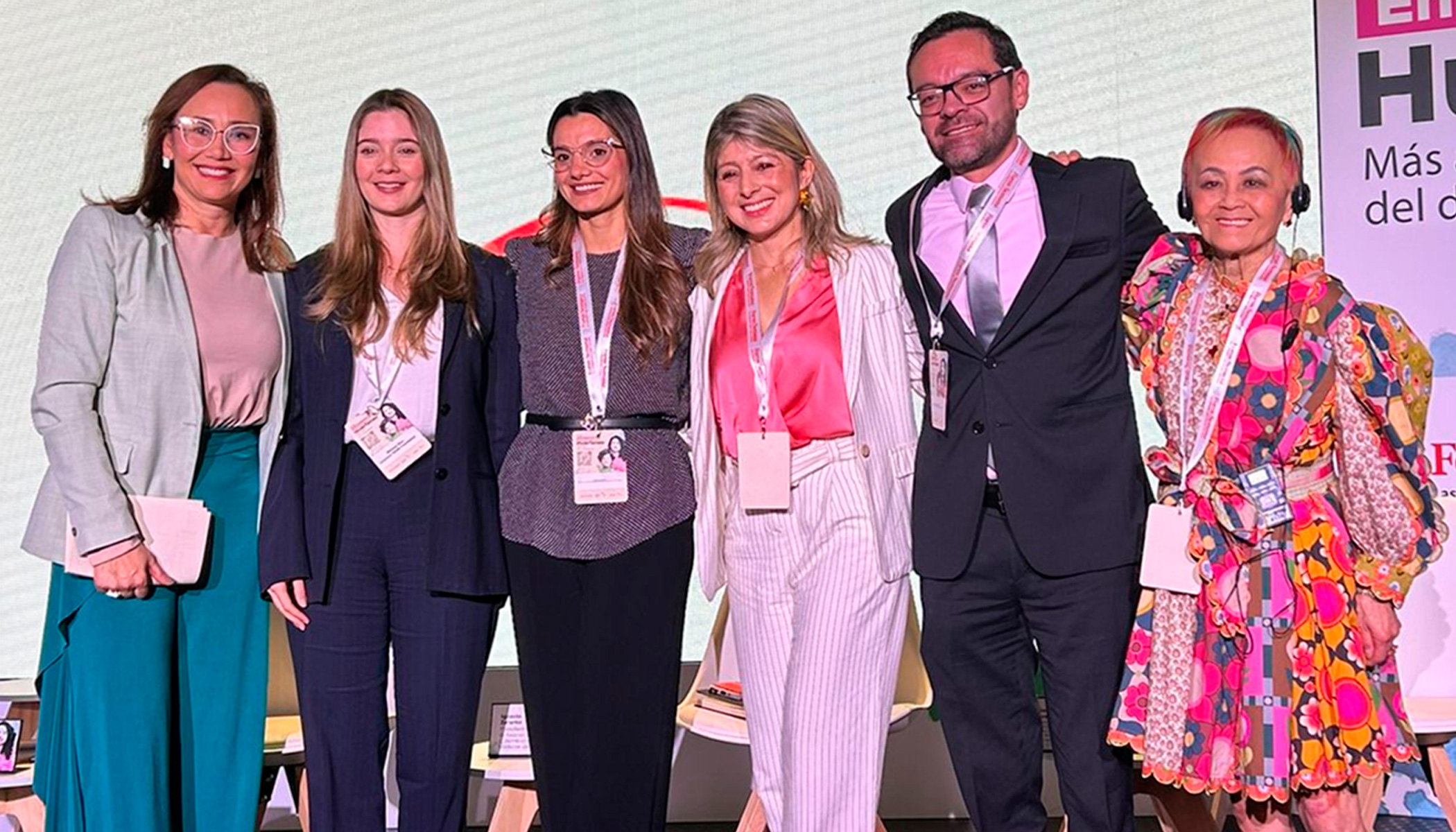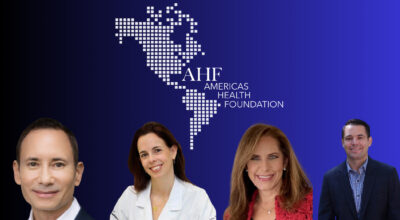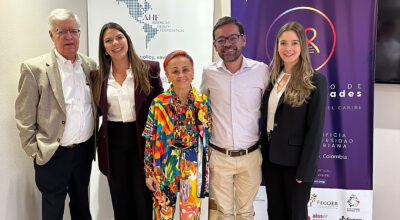In the February edition of our newsletter, we share insights from the healthcare landscape in Latin America, as well as exciting news about our ongoing and upcoming projects.
What’s New in the Healthcare Landscape in the Americas
- Dengue Outbreak: A significant dengue outbreak is affecting South America, with Brazil reporting 653,656 probable cases and Argentina witnessing a surge in Aedes albifasciatus mosquito activity. Preventive measures are being emphasized to curb the spread of the disease. Read more
- Measles Epidemiology Update: In 2023, spanning from epidemiological week (EW) 1 to EW 52, the Region of the Americas documented 14,884 suspected cases and 53 confirmed cases of measles. A concerning surge in cases in Europe has also been reported. Read more
- Colorectal Cancer: Colorectal cancer mortality in Latin America has increased by 20.5% over the past thirty years. Read more
What’s New at AHF
Events:
Rare Diseases Forum – Beyond Diagnostics: Dr. Mariana Rico, our Vice President participated in ‘Foro de Enfermedades Huérfanas: más allá del diagnóstico’, an event organized by Grupo Semana with the support of AHF, Roche, and Takeda. In the event, Dr. Rico addressed Challenges to Access and Financing in Health. Key findings from the event include:
- Importance of recognizing patient organizations as a reliable and organized source of information and incorporate their perspectives to guide policy.
- Government agencies, including ministries of health and finance, regulatory agencies, and HTA agencies must have open channels of communication to support regulatory and normative coherence that supports access to innovation.
- HTA agencies should adapt methodologies to ensure they adequately capture the value of the technology in questions. In the context of rare disease, this means including social participation in HTA and re-thinking the concept of cost-effectiveness.
- Trust among all stakeholders and political will are vital to developing and implementing financing mechanisms that support the sustainability of rare disease medications.
Partnerships:
- The Second Congress on Rare Diseases for Latin America and the Caribbean: AHF has welcomed FIFARMA & RARE DISEASES INTERNATIONAL (RDI) as partners for the Second Congress on Rare Diseases for Latin America and the Caribbean, an event led by AHF and co-hosted by ERCAL, FECOER, UNIVERSIDAD PONTIFICIA JAVERIANA, and INSTITUTO DE GENÉTICA HUMANA. The event is taking place at the Universidad Pontificia Javeriana, in Bogotá, Colombia, October 16–17.
- World Orphan Drug Congress USA: AHF has joined as a key partner at the World Orphan Drug Congress USA, 2024 – a defining event for the rare disease and orphan drug landscape worldwide. Topics addressed in the event will include generation therapies, clinical development and regulatory, global market & patient access, advanced therapies, rare disease advocacy, among others. The event is taking place at the Boston Convention & Exhibition Center, April 23–25.
Projects:
- NMOSD Consensus Conference Dissemination Campaign: AHF is conducting a campaign to disseminate the key information from a consensus conference we conducted on the diagnosis and treatment for neuromyelitis optica spectrum disorder (NMOSD) in Latin America, with a focus on expert recommendations to improve access to aquaporin-4 testing for the disease. This campaign targets medical professionals, patient associations, patients and caregivers, policymakers, and the general public. It aims to educate, unify diagnosis and treatment standards, and elevate the priority of NMOSD in Latin American countries.
- Task Force for Diagnosis and Treatment of People with Alzheimer’s Disease in Latin America: AHF is conducting a campaign to disseminate information on key challenges surrounding Alzheimer’s Disease Diagnostics & Treatment in Latin America. This campaign, which targets multiple stakeholders in the Alzheimer’s Disease environment, aims to help bridge gaps in diagnosis and care in Latin America. This initiative also builds upon the findings from one of our latest manuscripts, A Task Force for Diagnosis and Treatment of People with Alzheimer’s Disease in Latin America, published in Frontiers in Neurology. This manuscript was the primary deliverable of another consensus conference conducted by AHF.
- The Management of Multiple Myeloma in Brazil in the Bispecific Era: AHF is planning a consensus conference on the management of Multiple Myeloma in Brazil in the Bispecific Era. The initiative aims to provide an up-to-date overview of the most recent data, enhance understanding of car T-cell and bispecific therapy indications based on individual patient profiles, establish recommendations for the appropriate sequencing of these treatments in MM cases, and facilitate a comprehensive understanding of the management of adverse events, all within the specific context of Brazil.
- Public Health Management and Access to Innovative Therapies in Brazil through the Lens of Breast Cancer: AHF is planning a consensus conference on Public Health Management and Access to Innovative Therapies in Brazil through the lens of Breast Cancer. This project aims to highlight the importance of early detection and prompt, appropriate treatment for patients to prevent disease progression or recurrence. Additionally, we will address the economic burden and consequences of inaction associated with inadequacies in diagnosis and treatment for the disease.
- Improving Pulmonary Arterial Hypertension Care in Latin America: AHF is planning a multi-project initiative which seeks to improve pulmonary arterial hypertension care (PAH) in Latin America. This project aims to educate Latin American policymakers and other stakeholders on the importance of and strategies to increase access to faster diagnoses and adequate treatment, increase disease awareness, bridge existing information gaps in the region, and to provide a platform for leaders in advocacy in PAH to address challenges they face.
Stay tuned for more updates and developments as we further our mission of improving healthcare in Latin America and other underserved regions.




